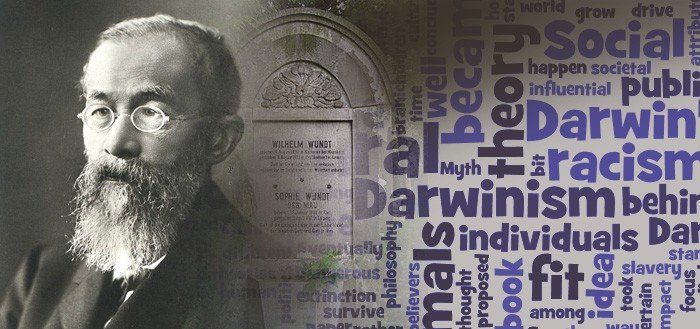
To those assiduous history and psychology students, the name Wilhelm Maximilian Wundt may evoke in the mind's eye a certain period in Germany's history in which philosophy mingled with science to create what may be the magnum opus of that century -- psychology itself.
Wilhelm Wundt was a professor at the University of Leipzig during the late 1800's, where he taught, among other subjects, physiology, philosophy, and later psychology, when his laboratory was properly established.
1879 was the year when psychology was made officially seperate from philosophy. No longer mere metaphysics and meditations, the inner workings of the human mind were made irrevocably empirical. As an oft disregarded historical figure, Wilhelm Wundt has become obfuscated through the annals of history, and I believe his name became subject to the same brand of revisionist history that he helped to create.
To Wundt, a thing made sense only if it could be scientifically demonstrated, which could not happen in philosophy, unless the spirit, or soul, was no longer an object of debate. Wundt proposed that psychology should be based only on experience, dismissing all previous notions of spirit.
Wundt's new form of metaphysics (or rather, the rejection thereof) would go on to underpin both communism and facism, with a subversive instrumentality which was both hidden and unexpected. There is no doubt in my mind that Wundt altered democracy, and by extension, the very course of history.
Upon examination, it becomes clear that Wundt combined elements of Hegel's social theory with his own experimental psychology. Chillingly, the result was an ideology resembling what we now know as behaviorism, in which the behaviors of animals are compared and weighed against those of humans, often through extensive experimentation.
For those who don't know, behaviorism was the methodology of "mind control" behind project paperclip and subsequent psy-ops (such as MKUltra) conducted by the C.I.A. against unwitting U.S. civillians in the 50's, leading up to where the documentation stops circa 1973.
The principle idea of behaviorism is that the behavior of organisms, including human beings, is predictable, and therefore controllable.
"Give me a baby, and I can make any kind of man."
-John B. Watson, founder of Behaviorism
The disturbing precursors to behaviorism can be observed in Wundt's lecture, "Human and Animal Psychology", in which he posits that Human beings respond to certain stimuli in a similar manner as animals. They are compared based on learned behaviors. Even more disturbing, Wundt's prestige gave him influence in the scientific community, which invariably reached various forms of infrastructure, including, but not limited to, education.
John B. Watson's experiments on human babies are well documented. In one particular instance, he was able to successfully determine that he could induce a fear-based reaction to otherwise benign factors -- such as bunnies, or even Santa Claus.
In a broad sense, behaviorism permeated the C.I.A.'s dealings with the public. The idea that workers were merely a resource (human resource) was a relatively new concept, and not everyone in the workforce was equally susceptible to the fear-based conditioning.
While many factory workers were given extremely repetitious tasks, and told that they could be replaced at any time, more skilled workers in short supply such as engineers, could make their own demands.
Indeed, behaviorism was seemingly abandoned. Workers increased productivity when certain conditions were met. For example, the option to voice their concerns... even if those concerns were largely ignored!
Behaviorism has taken many forms through the years, and today it is largely subdued. It leaks through television screens and enters our children's bloodstream in the guise of ADD medication. Its applications are wide and varied.
Follow me as I continue to examine, in detail, the powerful and immortal ideas of the past, and how they now shape the world around us.